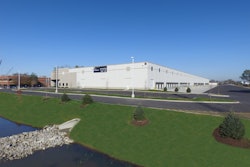Nov. 24, 2015—Life seems like a feast for artisanal-food makers lately.
Over the past few years, shoppers have been flocking to locally made, sustainable products—and that has caught the eye of big players. Huge retail chains are stocking organic fare from small outfits, and venture capitalists have started plowing money into the industry. They’ve backed small food businesses of all stripes, from Hampton Creek, which makes plant-based alternatives to meat and eggs, to Munchery, which delivers chef-prepared meals to customers’ homes.
Yet the sudden burst of customers and backers has brought food entrepreneurs a lot of headaches. Many business owners say they’re struggling with issues of scale, scrambling to source enough ingredients to meet demand. Unlike big companies, it’s tough for a small operation to source ingredients all over the world to ensure that they have access to supplies year-round and can keep shelves stocked. It’s also harder for startups to get favorable contracts with multiple suppliers to limit the impact of poor weather on crops or changes in commodity pricing.
Consider Lisa Murphy, founder of Sosu Sauces in Oakland, Calif. She just scored a big win: shelf space for her gourmet ketchup and Sriracha on the shelves of Sur La Table stores throughout the country. But with one production cycle a year, pegged to the single northern California tomato-growing season, she’s concerned about ensuring inventory and smoothing out supply and demand so that she has enough inventory but is never holding on to too much.
To read the full story, please click here.

















